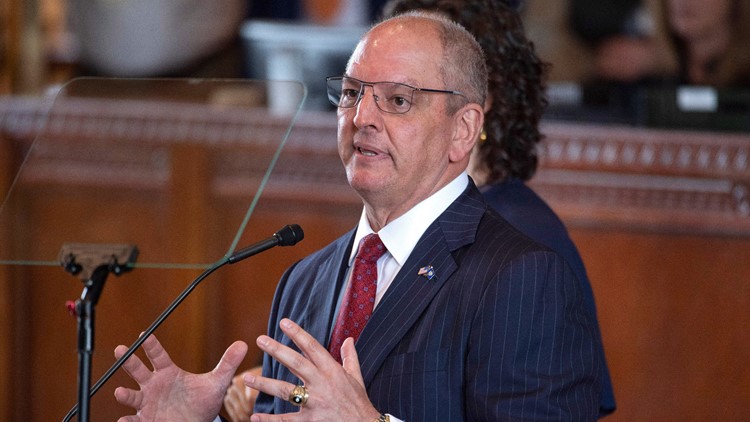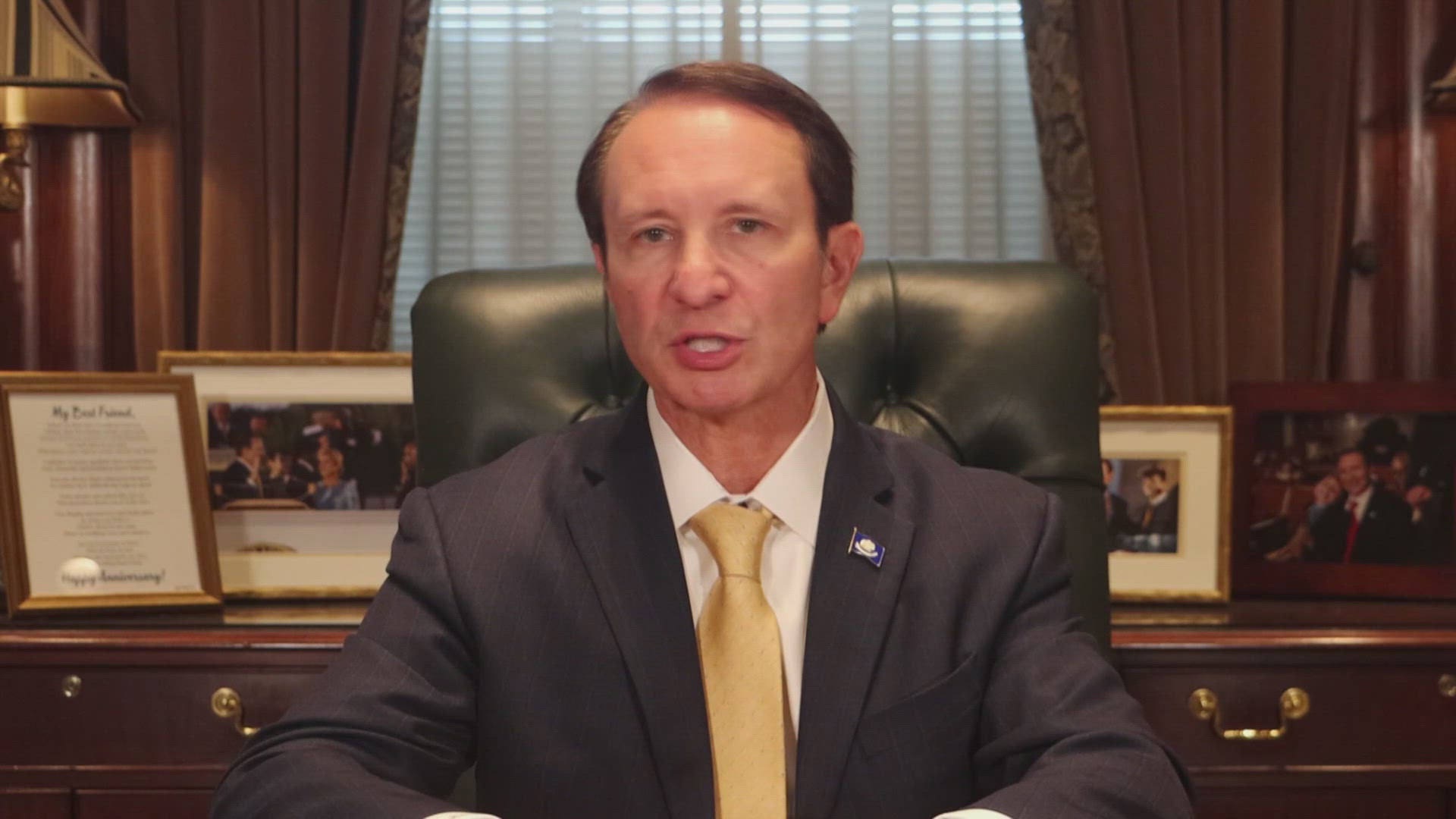BATON ROUGE, La. — Democratic Louisiana Gov. John Bel Edwards vetoed eight bills Wednesday recently passed by the Republican-dominated Legislature, including measures involving police and school vaccines.
Among the legislation blocked from becoming law is a bill that would have criminalized approaching within 25 feet (7.6 meters) of a police officer while they are engaged in enforcement duties. If found guilty of the proposed misdemeanor, a person could face a $500 fine or up to 60 days in prison.
Edwards — who has a law enforcement background, having served in the U.S. Army and as son of a sheriff — called the bill “unnecessary” and said it could be used “to chill exercise of First Amendment rights.”
Proponents of the legislation say it was created as a safety measure for police. Critics argue that the bill is unconstitutional and fear that it will hinder the public’s ability to film officers, which has increasingly been used to hold police accountable — including in high profile cases, such as the killing of George Floyd.
“It’s no secret that in recent years, bystander accounts and video footage have been the most powerful evidence of widespread police misconduct,” the American Civil Liberties Union of Louisiana said in a written statement. “Observations of law enforcement are invaluable in promoting police accountability.”
Edwards — who is in his final six months of office, unable to seek reelection this year due to consecutive term limits — also rejected a bill that would have required K-12 schools to send exemption information in communications about vaccine requirements.
“(The bill) as passed (by) the legislature is a covert attempt to undermine the faith of the public in vaccines,” Edwards wrote in his veto message. “School vaccination requirements protect both students and school personnel in communities where potential for vaccine-preventable disease transmission on high.”
However, the vetoed bills still have a chance of becoming law.
Whenever a Louisiana governor rejects a bill, a veto session is automatically scheduled. However, the legislature has only gathered for two veto sessions since 1974, as a majority of members typically opt out.
But a veto session seems more and more likely this year, as lawmakers wait to hear the governor’s decision on a series of controversial legislation: A “Don’t Say Gay” bill that broadly bars teachers from discussing gender-identity and sexual orientation in public school classrooms; a ban on gender-affirming medical care for transgender youths that includes puberty-blockers, hormone treatment and surgery; and a measure requiring public school teachers to use the pronouns and name that align with a student’s sex assigned at birth.
Edwards says that he intends to veto the package of anti-LGBTQ+ bills. In response, Republican lawmakers said they would likely return to the Capitol in attempt to override the governor’s vetoes.
Once in a veto session overriding the governor’s decision requires support from two-thirds of both the House and Senate. Republicans currently hold a two-thirds majority in both chambers.
Louisiana’s veto session is currently scheduled for July 18.



